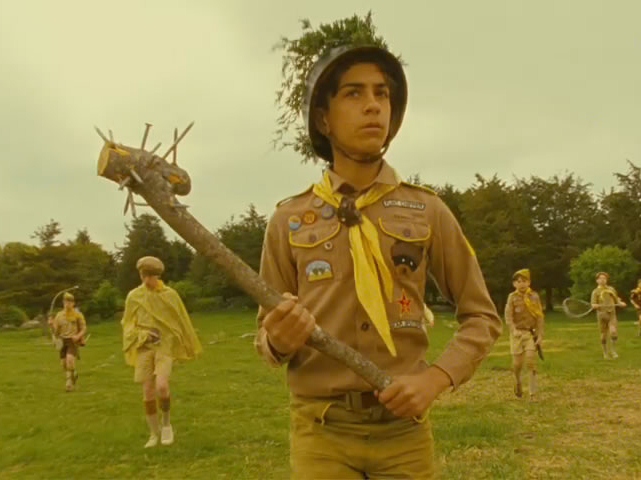Wes Anderson’s “Moonrise Kingdom,” which opened the Cannes Film Festival last week, is a movie whose pleasures are largely formal.
Anderson acolytes will welcome another demonstration of his deadpan visual strategies–the locked-down shots facing off on split screens, the camera panning slowly past a series of rooms to introduce some of the characters–and his detached narrative style (the film’s young-love story is precisely observed without ever stooping to sweep us up in its adolescent emotions).
Those who find the director’s work flawed by preciousness, however, may grow impatient well before the movie reaches the 90-minute mark.The picture’s supporting cast is heavy with stars, but the lead characters are played by two first-time screen actors. Kara Hayward is 12-year-old Suzy Bishop, resident with her family in a big house on New Penzance Island, off the coast of New England. Suzy is a rebel with a precocious fondness for heavy eye shadow and imported Françoise Hardy records. She’s alienated from her parents (Bill Murray and Frances McDormand) and her little brothers, and she can’t wait to grow up and be gone. “I want to have adventures and stuff,” she says.
Suzy has been corresponding by letter–we’re in 1965 here–with 12-year-old Sam Shakusky, a fellow outcast who’s on the island with his scout troop, led by Scout Master Ward (Edward Norton). Sam and Suzy met a year earlier during a church performance of Benjamin Britten’s musical play, Noye’s Fludde. (Britten’s music is a steady presence throughout the film.) Now, Sam, an orphan, has been disowned by his foster father, and soon a social-services martinet (Tilda Swinton) will be on her way to the island to reclaim him as a ward of the state. Fed up, Sam and Suzy decide to run away (well, as far away as you can run on an island).
Read the full review at Reason.com

COMMENTS
Please let us know if you're having issues with commenting.